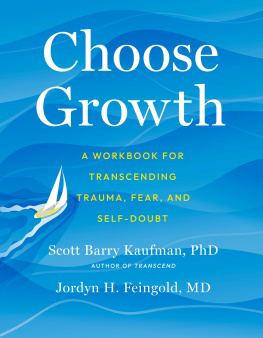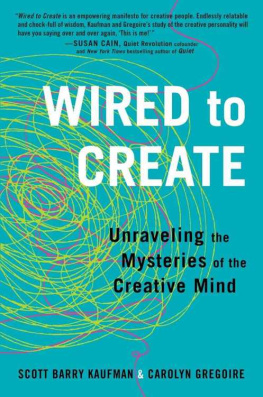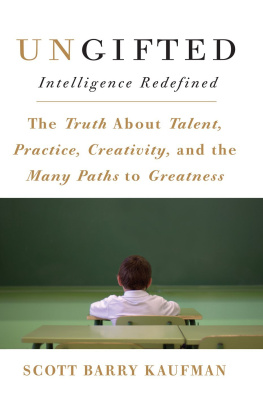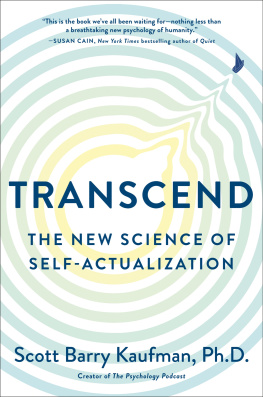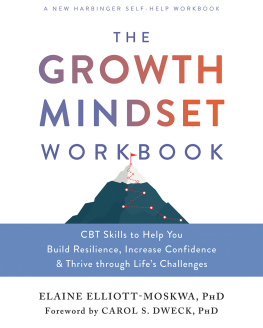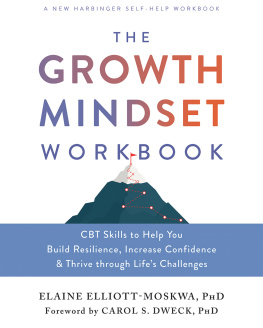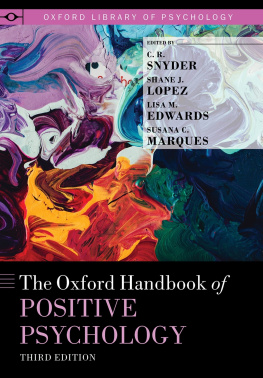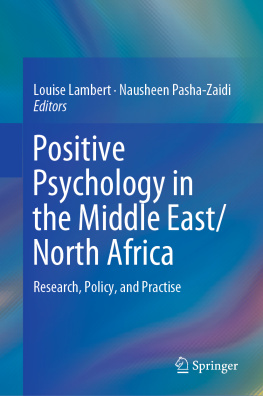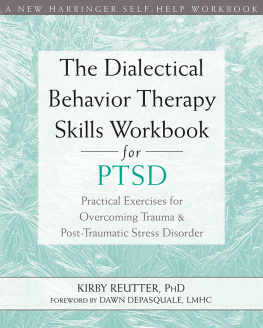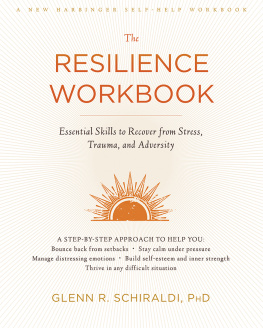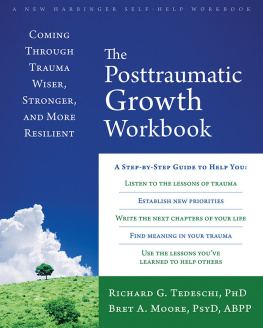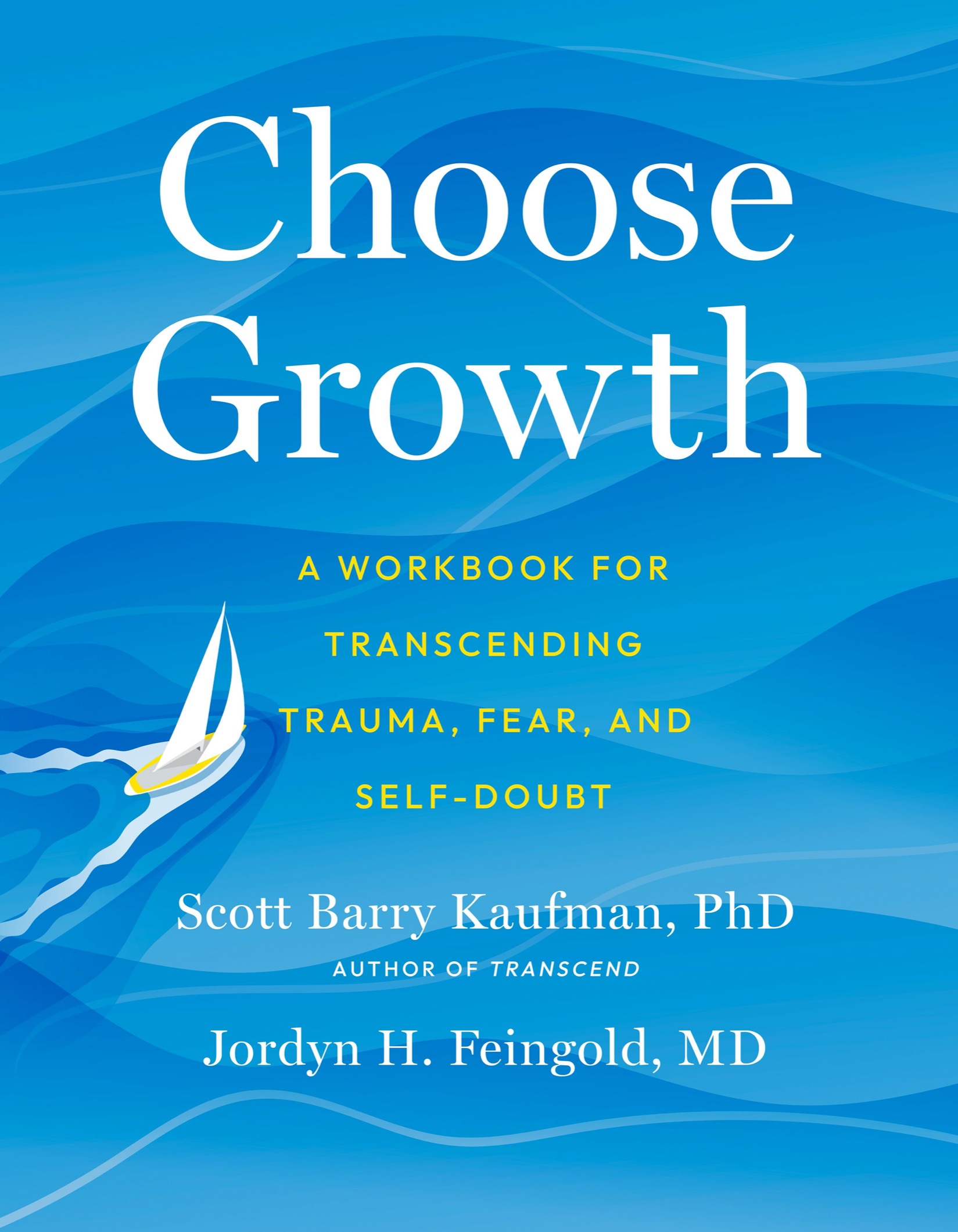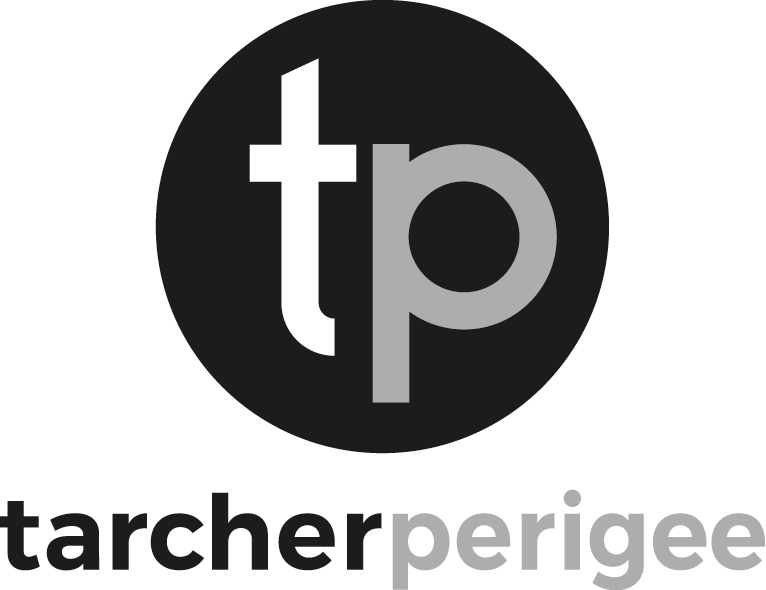
An imprint of Penguin Random House LLC
penguinrandomhouse.com
Copyright 2022 by Scott Barry Kaufman and Jordyn H. Feingold
Penguin Random House supports copyright. Copyright fuels creativity, encourages diverse voices, promotes free speech, and creates a vibrant culture. Thank you for buying an authorized edition of this book and for complying with copyright laws by not reproducing, scanning, or distributing any part of it in any form without permission. You are supporting writers and allowing Penguin Random House to continue to publish books for every reader.
TarcherPerigee with tp colophon is a registered trademark of Penguin Random House LLC.
Library of Congress Cataloging-in-Publication Data
Names: Kaufman, Scott Barry, 1979 author. | Feingold, Jordyn H., author.
Title: Choose growth: a workbook for transcending trauma, fear, and self-doubt / Scott Barry Kaufman, PhD & Jordyn H. Feingold, MD
Description: New York: TarcherPerigee, [2022]
Identifiers: LCCN 2022017136 (print) | LCCN 2022017137 (ebook) | ISBN 9780593538630 (trade paperback) | ISBN 9780593538647 (epub)
Subjects: LCSH: Self-actualization (Psychology) | Resilience (Personality trait) | Adjustment (Psychology) | Change (Psychology)
Classification: LCC BF637.S4 K3948 2022 (print) | LCC BF637.S4 (ebook) | DDC 158.1dc23/eng/20220609
LC record available at https://lccn.loc.gov/2022017136
LC ebook record available at https://lccn.loc.gov/2022017137
Cover design: Amanda Weiss
Cover art: Adobe Stock
Book design by Laura K. Corless, adapted for ebook by Kelly Brennan
Neither the publisher nor the authors are engaged in rendering professional advice or services to the individual reader. The ideas, procedures, and suggestions contained in this book are not intended as a substitute for consulting with your physician. All matters regarding your health require medical supervision. Neither the authors nor the publisher shall be liable or responsible for any loss or damage allegedly arising from any information or suggestion in this book.
pid_prh_6.0_140854597_c0_r0
This book is dedicated to our parents, for encouraging us to choose growth, time and time again.
CONTENTS
INTRODUCTION
One can choose to go back toward safety or forward toward growth. Growth must be chosen again and again; fear must be overcome again and again.
Abraham Maslow
To exist is a true gift. The mere act of existence is full of possibilities for self-actualization and meaningful contribution. With life you can matter and realize your most unique potentials that only you have. There is no one else in the world who can realize those potentials but you.
Human existence is also full of challenges. This is a given of existence, as the existential psychotherapist Irvin Yalom put it. Indeed, we are living in a time of great change. A global pandemic. An unstable economy. Threats of climate change. Poverty. Inequity. Collapsing governments. War. There are so many reasons to be insecure, uncertain, and apprehensive of the future.
Its not easy being human, and yet here we are. Humans have shown during this time a remarkable capacity to not only survive and adapt, but also to thrive. What if these times of great uncertainty can lead to changes that contribute to our greatest sources of self-actualization and transcendence? Lets face it: Were ready for it. Were craving it. More people are ready to change their jobs than ever before. According to one survey of U.S. workers, 95 percent said they were considering leaving their jobs due to burnout and a lack of growth opportunities. Maybe now is that time to try new things. To reprioritize. To grow.
This book is about helping all of us transcendto integrate the many facets of ourselves, in service of realizing the good of societyeven under the most challenging of circumstances. We will help you lean in to the growth potential we all have, embrace and cocreate our new normal, and face future challenges with a renewed sense of vitality, strength, and hope for the future.
The pages of this book are entirely yours: a judgment-free zone to explore your needs and resolve inner conflict and begin to explore how to heal from external conflict as well. It is designed to help build insight and self-understanding to clarify what matters most and how you can choose to nurture those things to ultimately live a richer, more meaningful, and self-actualized life. This book is evidence-based and draws heavily from several areas of psychology, including humanistic psychology, positive psychology, developmental psychology, personality psychology, cognitive science, and neuropsychology.
Were all at different points in our self-actualization journeys, but weve all been through the prolonged uncertainty of a global pandemic that has shaken the very foundations of our lives.
POST-TRAUMATIC GROWTH
Hardship often prepares an ordinary person for an extraordinary destiny.
C. S. Lewis
The human capacity for resiliencebouncing back in the wake of adversityis often underrated. Resilience researcher George Bonanno found that survivors of trauma tend to exhibit one of three trajectories: chronic symptoms, gradual recovery, or resilience. In almost every analysis he conducted, the resilience trajectorybouncing backis the most common pattern found. These core ingredients, Bonanno found, are essential for ones ability to bounce back, and, we would add, spring forward, after a life-altering event.
Not only is the potential for post-pandemic growth possible, but people are growing right now. According to one large Gallup poll, at the start of the pandemic the percentage of Americans who evaluated their lives well enough to be considered thriving was as low as ratings during the Great Recession. However, by June 2021 the percentage of Americans who evaluated their lives well enough to be considered thriving had reached the highest levels in more than thirteen years.
Were also finding newfound ways to be grateful. Psychologist Philip Watkins and his colleagues surveyed 511 adult participants from March to May 2020 about their current and future emotions. Even in the thick of the pandemic, more than 56 percent of people reported being very grateful in general, which was 17 percent higher than the responses of any other positive emotion. Whats more, 69 percent of respondents expected to feel even more grateful in the future. During the pandemic, gratitude was a strong predictor of happiness and significantly predicted the likelihood to help others.
The idea that pain and trauma can be transformed into courage and strength has a long history among humans, as exemplified by everything from art and literature to philosophy and spiritual beliefs. Indeed, the heros journey is a very common narrative throughout literature: The hero explores the world, conquers their inner demons or outer struggles, and comes home changed or strengthened in some victorious way.
The formal scientific study of this fundamentally human transformation boomed in the mid-1990s when psychologists Lawrence Calhoun and Richard Tedeschi coined the term

